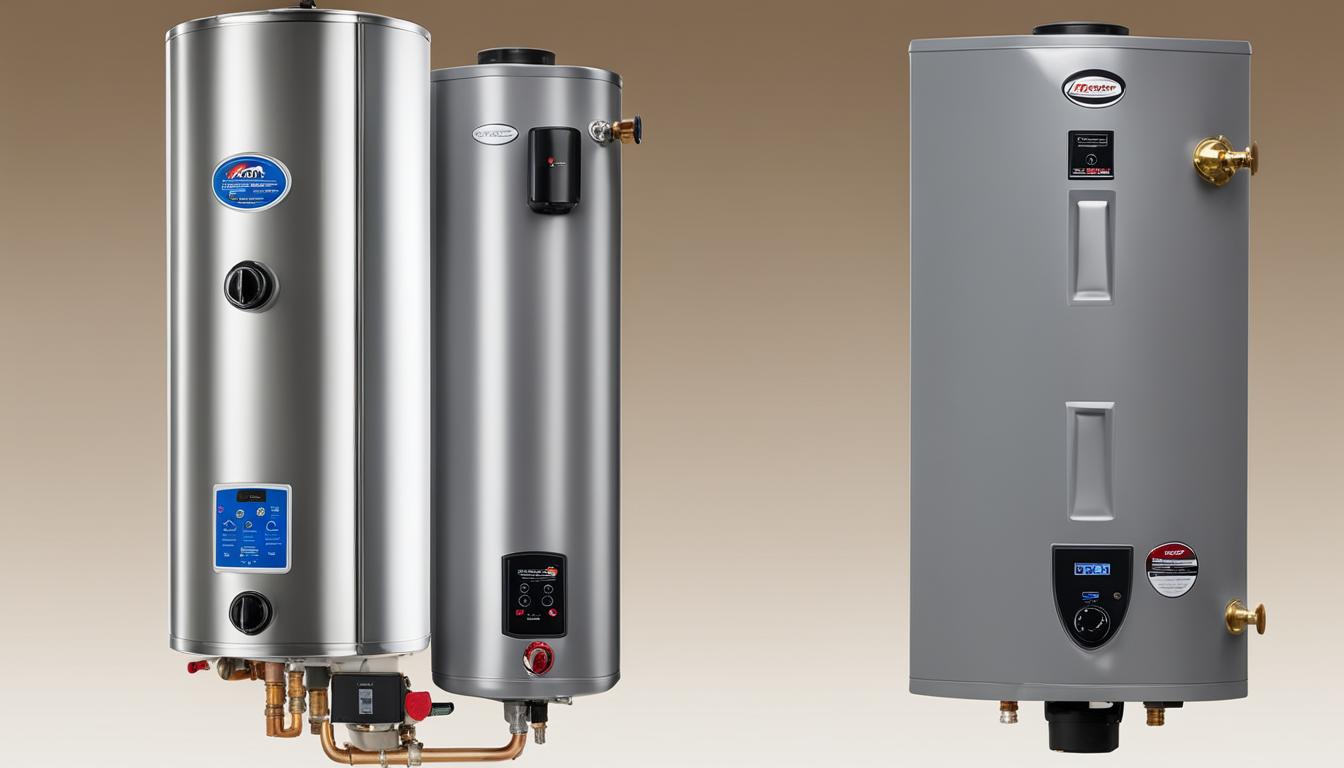Call This Saturday to Get $50 OFF
Call This Saturday to Get $50 OFF
Call This Saturday to Get $50 OFF
Call This Saturday to Get $50 OFF
Electric water heaters have gained popularity among environmentally conscious property owners, but priorities and preferences can vary. Some would make the trade-off for efficiency and effectiveness, for instance.

The debate between electric and gas water heaters is fierce, and we’re here to offer some guidance to help you make an informed decision. In this brief article brought to you by High Speed Plumbing, we give you the rundown on the pros and cons of electric vs. gas water heaters.
If you’d rather consult with a trained plumber in Alhambra, CA on the matter, then feel free to call High Speed Plumbing and schedule a face-to-face meeting or onsite visit. We are your source for everything from a tankless or hot water heater tank installation and routine maintenance to emergency repairs and the inevitable replacement.
Electric water heaters use heating elements to warm up the water in your tank or on-demand system. They’ve become increasingly popular in the past decade, especially among homeowners looking to reduce their carbon footprint.
The benefits of electric water heaters are many. For one, they generally cost less to purchase and install than their gas counterparts. Since they don’t require a gas line, installation is often quicker and easier. Plus, no gas line means no gas leaks or carbon monoxide poisoning.
Moreover, electric water heaters are more energy-efficient than gas models in terms of usage. They convert nearly all the energy they consume into heat; this means minimal waste.
If you're hearing a rumbling sound from your basement, don't ignore it. At High Speed Plumbing, we've seen everything from thermostat…
Running out of hot water at your business can mean angry customers, health code violations, or a full operational shutdown. Restaurants,…
Are you dealing with a leaky faucet, low water pressure, or a broken handle? If so, you might need a faucet…
A properly working garbage disposal makes kitchen cleanup easy and efficient. If your disposal is acting up—making loud noises, leaking, or…
When your main water line has a problem, it can cause a lot of trouble for your home. Leaks, low water…
Are you dealing with an old, leaky, or broken toilet? If so, it may be time for a toilet replacement in…
If you’re concerned about the quality of your water, water filtration installation in Pomona is a wise choice. A good filter…
Traditional snaking or chemical drain cleaners can harm pipes and aren’t always effective at reaching deep blockages…
The drawbacks include a higher operating cost and slower recover rates. Electricity tends to be more expensive than natural gas, which can lead to higher utility bills over time. They also heat water more slowly than gas models. This can be a valid concern for larger households with high hot water demands.
Gas water heaters use natural gas or propane to heat water. They’re a popular choice for homes with access to gas lines for several reasons.
For one, natural gas is typically less expensive than electricity – meaning lower operating costs. Moreover, gas water heaters heat water much faster than electric models. They are well-suited for homes with high hot water needs (like those with large families or multiple bathrooms).
The cons of gas water heaters are serious, however. These units come with risks of gas leaks and carbon monoxide poisoning. Proper installation and regular maintenance are essential to mitigate these dangers, but that brings us to the next drawback: gas water heaters are generally more expensive to purchase and install.
Moreover, it’s worth mentioning that gas water heaters tend to lose more energy than electric models due to heat escaping through vents or chimneys, a phenomenon known as standby heat loss. This only adds to their environmental impact.
The choice between an electric and gas water heater ultimately depends on your needs, priorities, and budget.
Homeowners considering a water heater replacement or new installation are welcome to call High Speed Plumbing with their questions and concerns. We are happy to help.
High Speed Plumbing can also help if you’re fine with the water heater you have but need urgent water heater repair. Call or message us at any time of the day to get in touch with a member of our team.